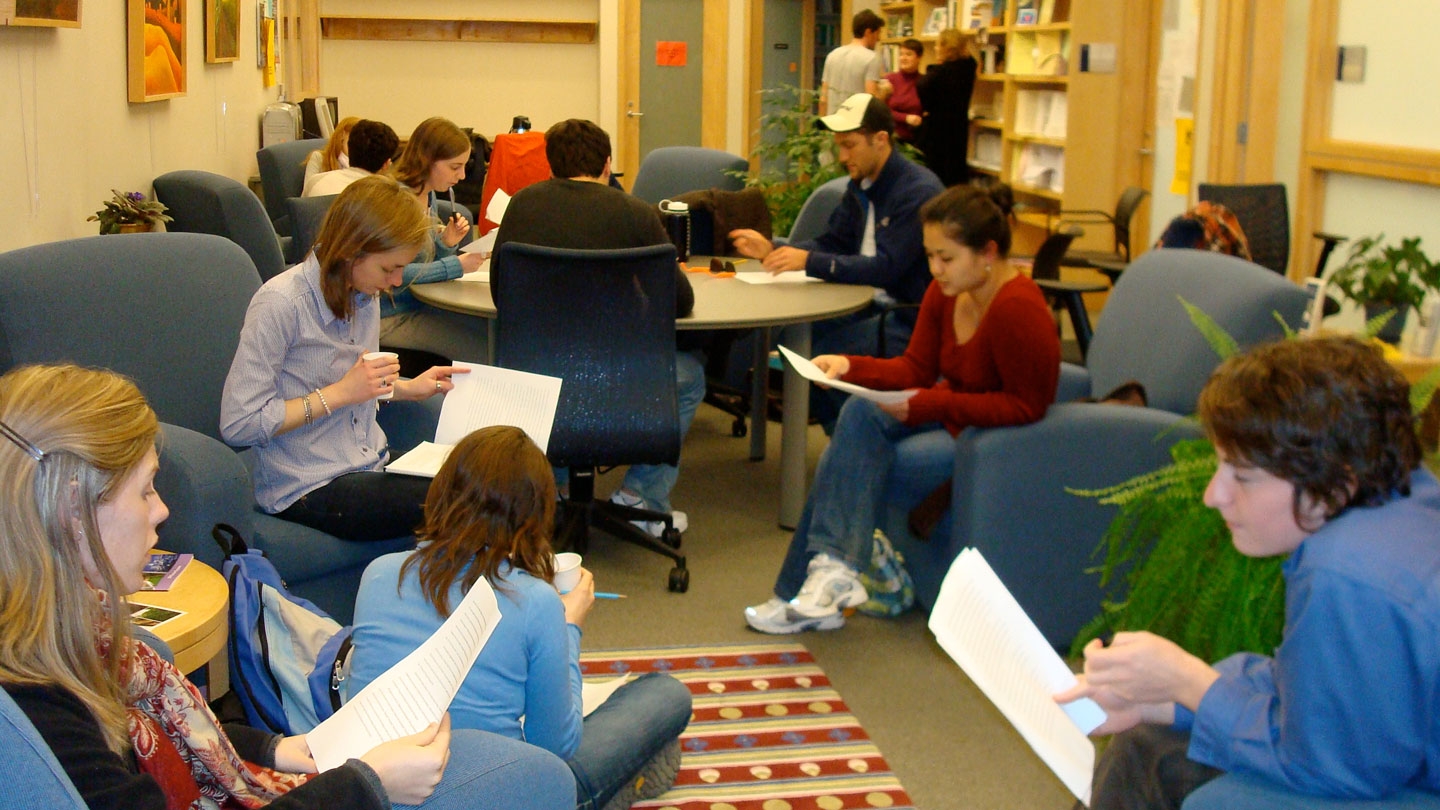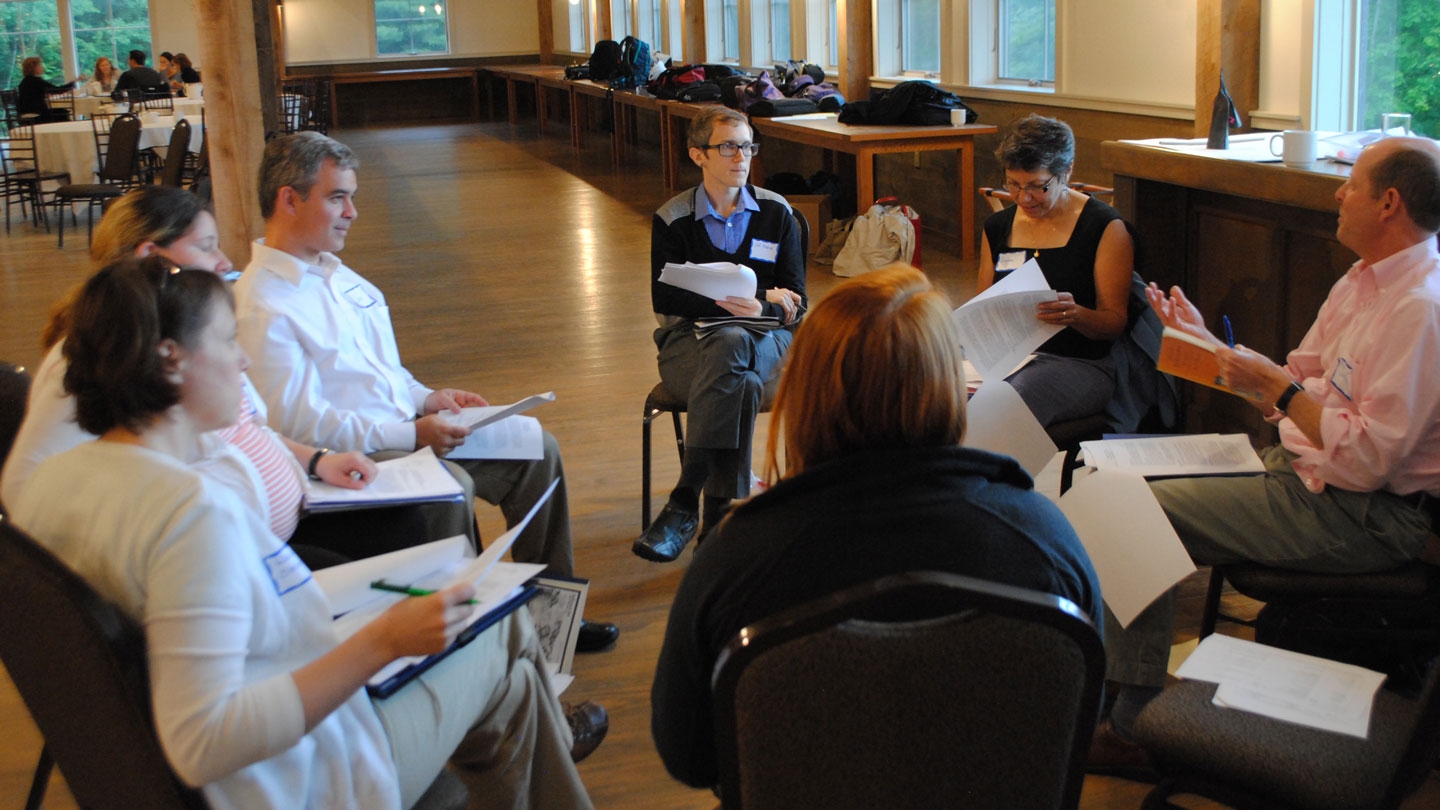Students in the Writing and Rhetoric Program, as well as all students at Middlebury, have numerous opportunities to improve and celebrate their writing. Our students have gone on to win writing awards, to work as peer writing tutors, to collaborate with us on scholarly and creative projects, to publish professionally, and to pursue graduate studies in writing and related fields.
Writing and Rhetoric Program
Writing and Rhetoric is an interdisciplinary program with faculty whose areas of expertise include composition, linguistics, rhetoric, and literature.
We work with students whose goals include academic writing and research, journalism, social activism, education, and creative and multimodal writing.
Interdisciplinary Approach
Our courses engage contemporary, socially relevant themes and are designed to build students’ confidence, awareness of rhetorical conventions, and skills in writing. Many courses are interdisciplinary and are often cross-listed with other departments and programs such as environmental studies; gender, sexuality, and feminist studies; history of art and architecture; and linguistics. We employ inclusive and antiracist pedagogies designed to facilitate students’ sense of belonging and agency at Middlebury and offer opportunities for them to write for a variety of audiences and in a range of modalities.
Student Opportunities

College Writing Requirement
Because Middlebury College values writing, all students are required to take two writing intensive courses.
The first writing intensive course is the first-year seminar, taught by faculty across the disciplines. The second writing intensive course is generally taken by the end of a student’s sophomore year or as determined by their major area of study.

Faculty Support
We engage with faculty interested in conversations about writing and the teaching of writing by hosting a variety of events that pertain to writing pedagogy and issues of difference and community in education, including our annual Teaching and Writing Retreat. We also provide a range of teaching and writing resources. See Faculty Resources.
Our Mission
The Writing and Rhetoric Program (WRPR) has a multipronged mission. Our program-specific (WRPR) courses engage contemporary, socially relevant themes, and are designed to build student confidence, awareness of rhetorical conventions, and skills in writing. We employ inclusive and antiracist pedagogies designed to facilitate students’ sense of belonging and agency at Middlebury and offer opportunities for them to write for a variety of audiences and in a range of modalities. We also support the teaching and learning of Writing across the Curriculum (WAC) and Writing in the Disciplines (WID) across College departments and programs through pedagogy workshops and individualized consulting as well as through administration of the second-level College writing requirement. More broadly, we seek to promote an institutional culture in which writing furthers learning and thinking and deepens our connections as an academic community.
The Writing and Rhetoric Program promotes the following:
- Writing to learn (not just writing as assessment)
- Disciplinary writing, as well as interdisciplinary/transdisciplinary work
- Antiracist pedagogies and assessment that focus on equity
- Language difference as an asset
- Building community in writing classrooms
- Collaboration among faculty, staff, and students
- Writing consultations between faculty and students, faculty and peer tutors, peer and professional writing tutors and student clients, and among peers
- Revision as essential to growth
- Rhetorical awareness and flexibility
- Rhetorical studies as a framework for addressing reading, writing, and speaking
